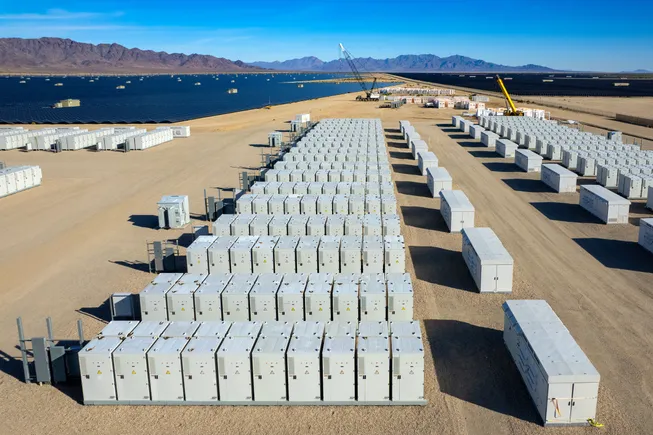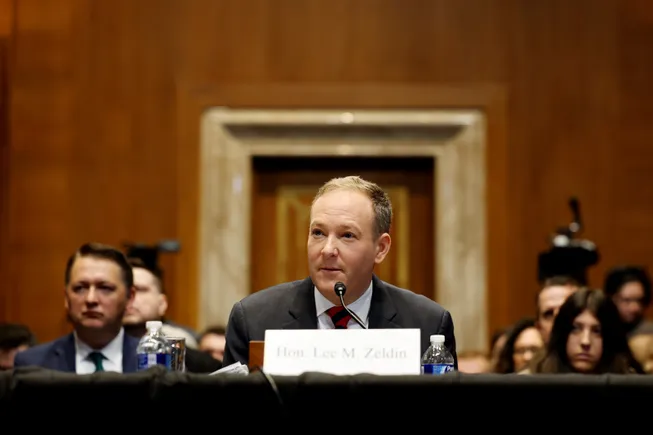
A de facto onshore wind ban was “not a rational decision,” a minister has said, as he described a “balance” between building new turbines and protecting national landscapes.
Michael Shanks told the Commons that “even if we build the significant number of projects that are needed” to meet the government’s goal of becoming a clean energy superpower, “there will still be” countryside protections in place.
He made the pledge as MPs debated proposals to have larger windfarm plans considered as Nationally Significant Infrastructure Projects (NSIPs), where decision-making powers lie with ministers rather than local councils.
MPs backed the plans – which would apply to windfarms with a capacity of more than 100MW – 307 votes to 100, majority 107.
Conservative shadow energy minister Andrew Bowie said the ban on onshore wind was “absolutely rational” when Shanks told MPs: “The ban introduced by the party opposite was not a rational decision and we’re bringing that back into this process.”
Conservative former minister and MP for North West Hampshire Kit Malthouse said “some of the frankly windiest places in the UK are often some of our most beautiful”.
He asked Shanks “what provision he was making in these regulations for protected national landscapes,” such as the North Wessex Downs.
Shanks replied: “There is a balance to be struck here where we need to build nationally important infrastructure and that does mean much more wind in England to match the significant amount of onshore wind that’s been built in Scotland for example over the past few years, including not far from my constituency.
“But there’s a balance to be struck around protecting land as well, and even if we build the significant number of projects that are needed, there will still be protections for land in the cases that he raises and the balance allows through the planning system to be taken into account.
Liberal Democrat energy spokeswoman Pippa Heylings said the UK is “living in the shadow of the former conservative government’s failure to invest in renewable energy,” but added that her party had “deep reservations” about the current government’s approach.
She said: “This appears to be a power grab, stripping away local voice and letting developers off the hook for their impacts on nature and wildlife. Nature is not a blocker, it’s an enabler of good growth and wellbeing.”
Heylings also said: “While we are supportive of the motion’s ambition to streamline planning for major projects like onshore wind, we register our concern about the government’s broader changes to the NSIPs and planning.”
The proposal will also lift a planning limit for solar developments, which are currently considered NSIPs at 50MW.
The order sets out a new threshold at 100MW.
Shanks said: “Much like onshore wind, solar panel technology has seen significant advances in efficiency enabling a greater megawatt yield per site. Evidence suggests that the 50MW threshold is now causing a market distortion.
“Under modern technology, mid-sized generating stations now have a generating capacity greater than 50MW and therefore fall within the NSIP regime. This is likely to be disproportionate to their size, scale and impact.
“This has resulted in a large amount of ground-mounted solar projects entering the planning system and artificially capping their capacity at just below the 50MW threshold leading to the potentially inefficient use of sites and grid connections.”
Bowie warned of “a literal free-for-all for giant-scale solar”.
He said: “The order that we debate today provides a route to approval for onshore wind, which entirely bypasses the consent of local communities and empowers the zealotry of the secretary of state (Ed Miliband) to impose infrastructure irrespective of the concerns of local people.”
Labour MP for Camborne and Redruth Perran Moon said the legislation will “further opportunities for renewable energy growth across Cornwall that would have just been ignored by the flat earth climate change deniers in the Conservative Party”.
Shanks said the instrument “is another important step forward” in delivering the government’s “clean power mission” and creation of “an effective planning system”.




















